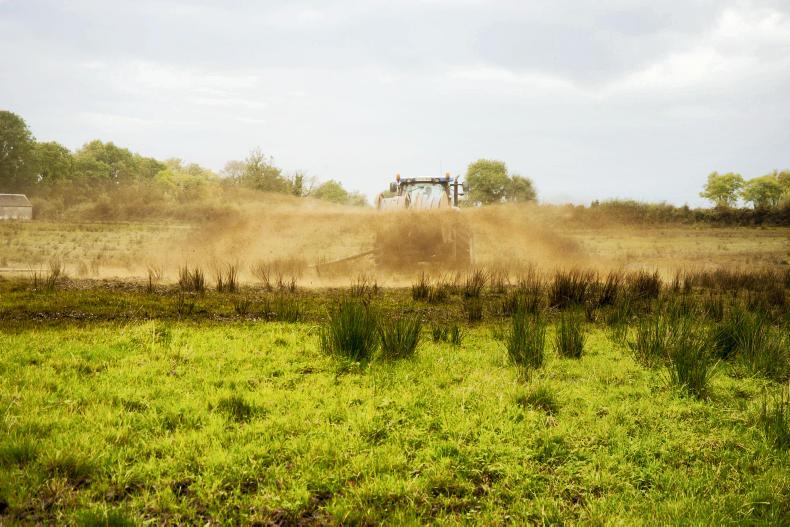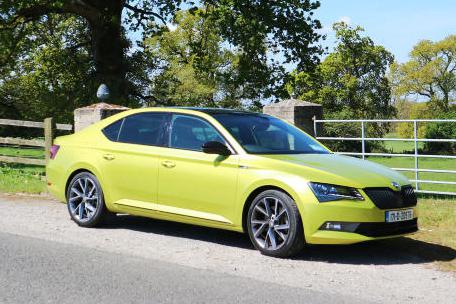The Climate Change Advisory Council (CCAC) is an independent body established under the 2015 Climate Action and Low Carbon Development Act and is tasked with advising the Government on how Ireland can best move towards a low-carbon economy by 2050.
The national policy position is to reduce emissions of carbon dioxide (Co2) by at least 80% by 2050, relative to 1990 levels.
In terms of agriculture specifically, which accounted for the majority of national greenhouse gas (GHG) emissions in 2014 (33%), followed by transport, the council advises that the sector outline a pathway towards its contribution to this 2050 target.
It says that "significant reductions" in non-Co2 emissions, such as methane and nitrous oxide, which arise out of manure management and fertiliser application, will be required, coupled with removal of Co2 through forestry and land-use management.
The vision for agriculture should not compromise capacity for sustainable food production
“These actions will need to be implemented in a measurable, reportable and verifiable manner,” the report says. It adds that the vision set out for agriculture should not “compromise capacity for sustainable food production”.
Challenges
The report acknowledges that “neutralising or balancing emissions of non-CO2 greenhouse gases in the agricultural sector represents an enormous challenge”.
“The challenge is complex,” it adds, and there is “uncertainty as to how it is to be achieved”.
According to the Environmental Protection Agency, official projections indicate that agricultural emissions will increase from 2015 because of changes in animal numbers, crop areas and projected nitrogen application to soils.
Ongoing deployment of technological breakthroughs that reduce the emissions intensity of agricultural production must be encouraged
The CCAC report says there needs to be more research into options "to reduce non-Co2 GHG emissions and more fully determine the nature of the total land sink".
It adds that technological breakthroughs that reduce the emissions intensity of agricultural production must be encouraged. For example, recent research has identified fertilisers which have lower emissions of nitrous oxide, which is a potent greenhouse gas. A shift from calcium ammonium nitrate (CAN) fertiliser to such a fertiliser could reduce annual emissions by 1.5m tonnes, the report says, and reduce costs for farmers.
Climate change targets
EU member states have committed to reduce their overall GHG emissions by 20% on 1990 levels by 2020 and 40% by 2030. The report said the council is concerned that Ireland will not meet its 2020 targets.
“Progress on emissions reductions in Ireland arising directly from climate policy is, at best, mixed,” it says, adding that not meeting our targets will have “cost implications” and “the cost of inaction will fall much more heavily on future generations”.
Following on from this report, the CCAC will produce reports on an annual basis to consider each year’s progress in achieving GHG emissions reductions and provide recommendations on how to progress with actions required to meet national, European and global climate commitments.
Read more
Green Party ag spokeswoman: Ireland is never going to feed the world
Two agriculture experts on new climate change council
The Climate Change Advisory Council (CCAC) is an independent body established under the 2015 Climate Action and Low Carbon Development Act and is tasked with advising the Government on how Ireland can best move towards a low-carbon economy by 2050.
The national policy position is to reduce emissions of carbon dioxide (Co2) by at least 80% by 2050, relative to 1990 levels.
In terms of agriculture specifically, which accounted for the majority of national greenhouse gas (GHG) emissions in 2014 (33%), followed by transport, the council advises that the sector outline a pathway towards its contribution to this 2050 target.
It says that "significant reductions" in non-Co2 emissions, such as methane and nitrous oxide, which arise out of manure management and fertiliser application, will be required, coupled with removal of Co2 through forestry and land-use management.
The vision for agriculture should not compromise capacity for sustainable food production
“These actions will need to be implemented in a measurable, reportable and verifiable manner,” the report says. It adds that the vision set out for agriculture should not “compromise capacity for sustainable food production”.
Challenges
The report acknowledges that “neutralising or balancing emissions of non-CO2 greenhouse gases in the agricultural sector represents an enormous challenge”.
“The challenge is complex,” it adds, and there is “uncertainty as to how it is to be achieved”.
According to the Environmental Protection Agency, official projections indicate that agricultural emissions will increase from 2015 because of changes in animal numbers, crop areas and projected nitrogen application to soils.
Ongoing deployment of technological breakthroughs that reduce the emissions intensity of agricultural production must be encouraged
The CCAC report says there needs to be more research into options "to reduce non-Co2 GHG emissions and more fully determine the nature of the total land sink".
It adds that technological breakthroughs that reduce the emissions intensity of agricultural production must be encouraged. For example, recent research has identified fertilisers which have lower emissions of nitrous oxide, which is a potent greenhouse gas. A shift from calcium ammonium nitrate (CAN) fertiliser to such a fertiliser could reduce annual emissions by 1.5m tonnes, the report says, and reduce costs for farmers.
Climate change targets
EU member states have committed to reduce their overall GHG emissions by 20% on 1990 levels by 2020 and 40% by 2030. The report said the council is concerned that Ireland will not meet its 2020 targets.
“Progress on emissions reductions in Ireland arising directly from climate policy is, at best, mixed,” it says, adding that not meeting our targets will have “cost implications” and “the cost of inaction will fall much more heavily on future generations”.
Following on from this report, the CCAC will produce reports on an annual basis to consider each year’s progress in achieving GHG emissions reductions and provide recommendations on how to progress with actions required to meet national, European and global climate commitments.
Read more
Green Party ag spokeswoman: Ireland is never going to feed the world
Two agriculture experts on new climate change council










SHARING OPTIONS